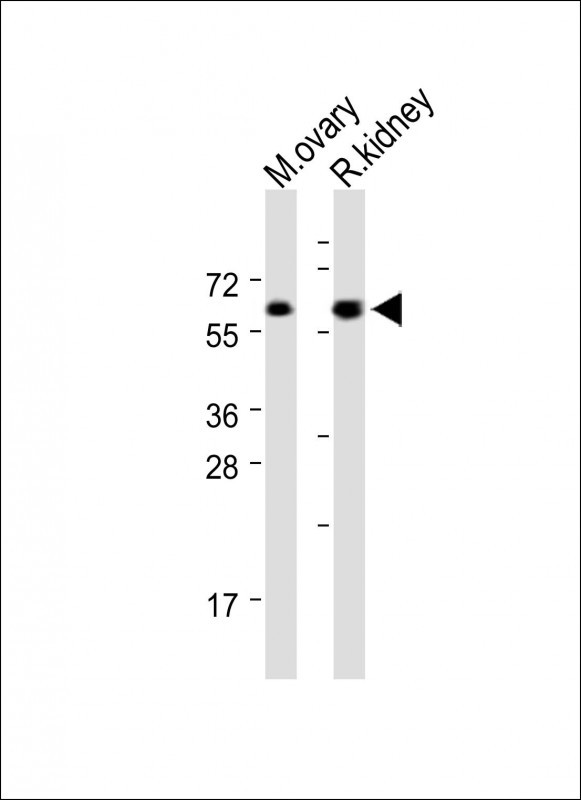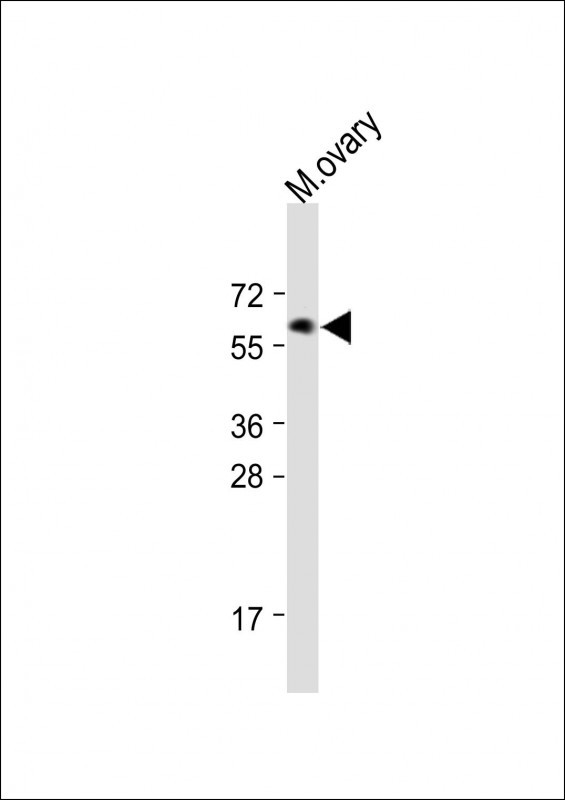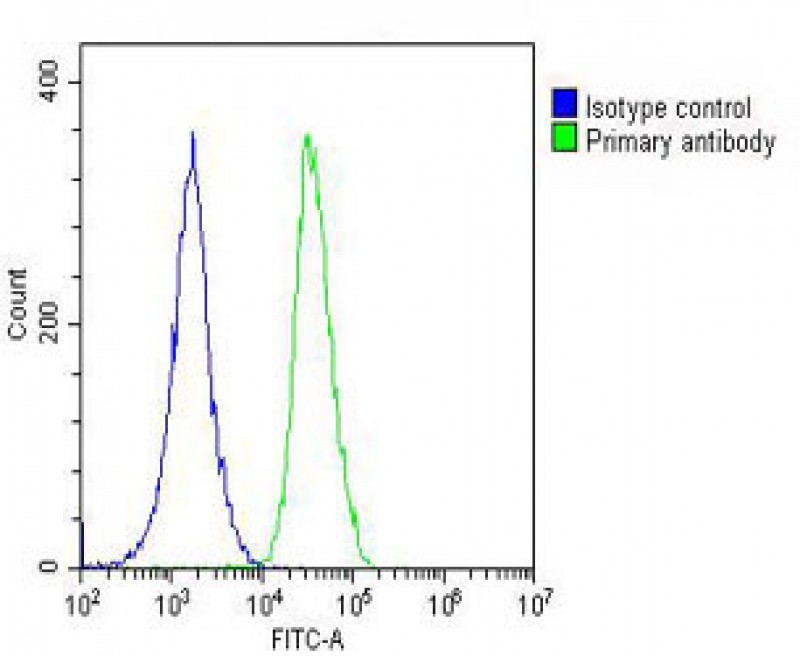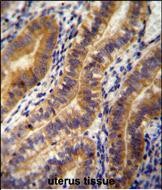




| WB | 咨询技术 | Human,Mouse,Rat |
| IF | 咨询技术 | Human,Mouse,Rat |
| IHC | 1/100-1/500 | Human,Mouse,Rat |
| ICC | 技术咨询 | Human,Mouse,Rat |
| FCM | 1/25 | Human,Mouse,Rat |
| Elisa | 咨询技术 | Human,Mouse,Rat |
| Aliases | Angiopoietin-2, ANG-2, ANGPT2 |
| Entrez GeneID | 285 |
| WB Predicted band size | 56.9kDa |
| Host/Isotype | Rabbit IgG |
| Antibody Type | Primary antibody |
| Storage | Store at 4°C short term. Aliquot and store at -20°C long term. Avoid freeze/thaw cycles. |
| Species Reactivity | Human, Mouse, Rat |
| Immunogen | This ANGPT2 antibody is generated from rabbits immunized with a KLH conjugated synthetic peptide between 404-432 amino acids from the C-terminal region of human ANGPT2. |
| Formulation | Purified antibody in PBS with 0.05% sodium azide. |
+ +
以下是3篇关于ANGPT2抗体的代表性文献,按研究重点分类整理:
---
1. **文献名称**:*ANGPT2 blockade inhibits pathological angiogenesis and survival of solid tumors*
**作者**:Falcon BL et al.
**摘要**:研究团队开发了一种靶向ANGPT2的单克隆抗体,证明其可抑制肿瘤血管异常增生,并通过阻断ANGPT2与受体Tie2的结合,延缓小鼠模型中多种实体瘤的生长,提示其作为抗肿瘤治疗的潜力。
2. **文献名称**:*Dual inhibition of Angiopoietin-2 and VEGF-A in metastatic colorectal cancer: phase I study of vanucizumab*
**作者**:Hidalgo M et al.
**摘要**:该Ⅰ期临床试验评估了双特异性抗体vanucizumab(同时靶向ANGPT2和VEGF-A)在转移性结直肠癌患者中的安全性与初步疗效,结果显示其通过双重抑制血管生成通路表现出可控毒性及抗肿瘤活性。
3. **文献名称**:*Anti-Angiopoietin-2 antibody enhances the anti-tumor effect of immune checkpoint inhibitors by reprogramming the tumor microenvironment*
**作者**:Schmittnaegel M et al.
**摘要**:研究发现抗ANGPT2抗体可通过减少肿瘤内调节性T细胞浸润并增强效应T细胞功能,重塑免疫抑制性肿瘤微环境,与PD-1抑制剂联用显著提高小鼠模型中的治疗效果,为联合免疫治疗提供理论依据。
---
**备注**:以上文献均聚焦于ANGPT2抗体的治疗机制或临床转化,涵盖基础研究(肿瘤血管抑制)、临床试验(双靶点策略)及联合治疗(免疫微环境调控)等方向。如需具体DOI或发表年份,可进一步补充检索。
ANGPT2 (Angiopoietin-2) is a glycoprotein belonging to the angiopoietin family, primarily known for its role in regulating vascular and lymphatic angiogenesis. It functions as a context-dependent agonist/antagonist of the Tie2 receptor, modulating endothelial cell signaling. Under physiological conditions, ANGPT2 is involved in vascular remodeling, inflammation, and permeability. However, dysregulation of ANGPT2 expression is implicated in pathological states such as tumor angiogenesis, chronic inflammation, and vascular-related disorders like diabetic retinopathy and sepsis.
ANGPT2 antibodies are therapeutic or research tools designed to target and neutralize ANGPT2 activity. These antibodies block ANGPT2-Tie2 interactions, thereby inhibiting pro-angiogenic and pro-inflammatory pathways. In cancer, ANGPT2 overexpression correlates with tumor progression and metastasis; anti-ANGPT2 antibodies may suppress tumor vasculature and enhance chemotherapy efficacy. In ocular diseases, such as age-related macular degeneration (AMD), ANGPT2 inhibition is explored alongside VEGF-targeting therapies to address vascular leakage.
Notable ANGPT2-targeting agents include bispecific antibodies (e.g., faricimab, which targets both ANGPT2 and VEGF-A) currently in clinical trials. Research also highlights ANGPT2's role in modulating immune cell recruitment, suggesting broader applications in inflammatory and autoimmune diseases. However, challenges remain in understanding tissue-specific effects and optimizing therapeutic windows. Overall, ANGPT2 antibodies represent a promising, multifaceted approach to treating angiogenesis- and inflammation-driven pathologies.
×